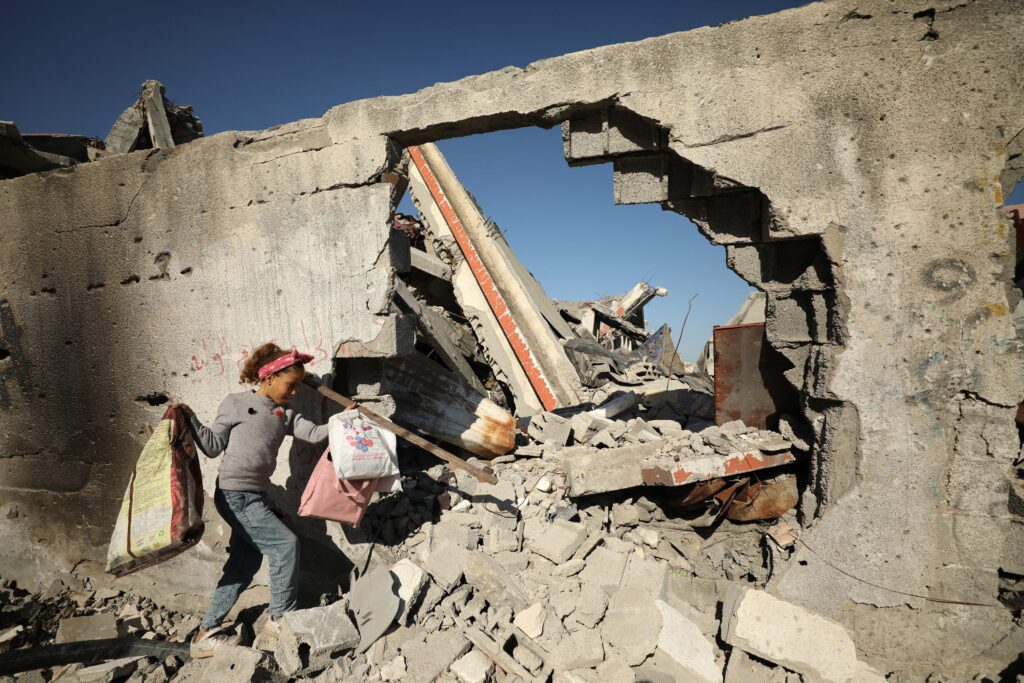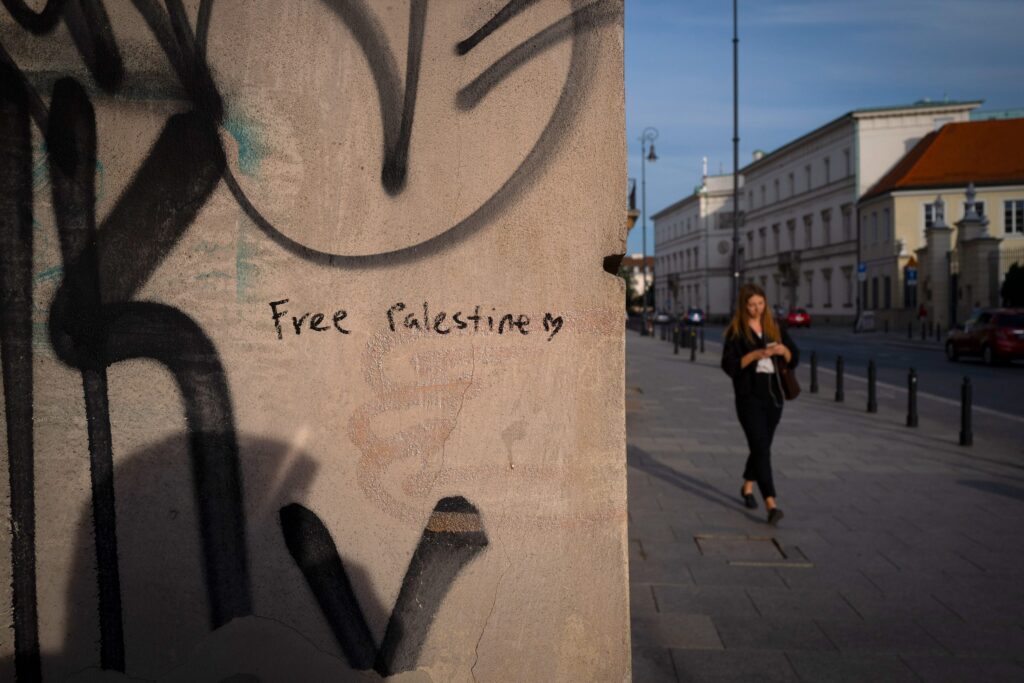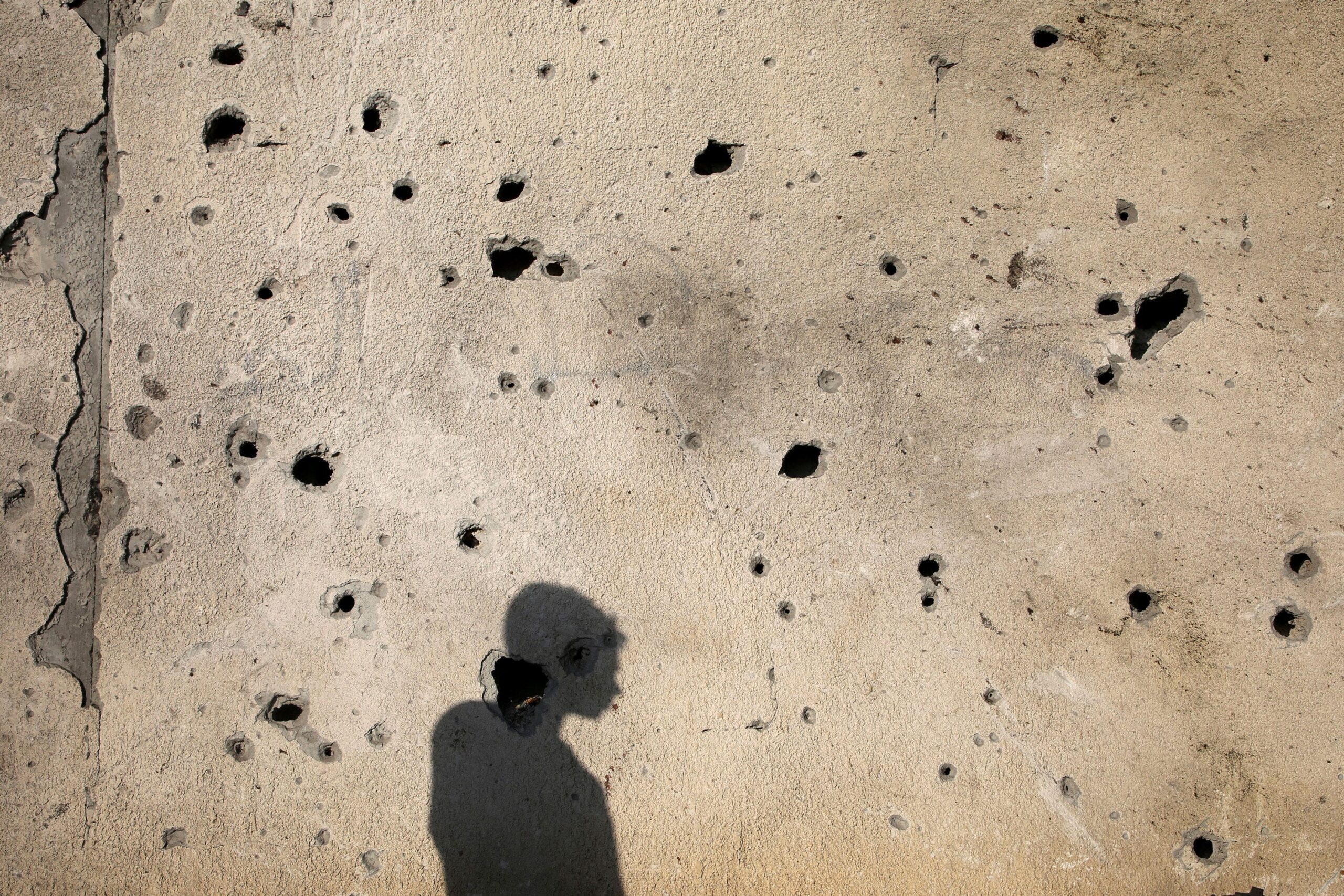We have two very special pieces to spotlight in this issue, our 20th, of The Ideas Letter. A friend, Adania Shibli, recently introduced us to the extraordinary writer Muhammad al-Zaqzouq, a Palestinian from Gaza, who shares (from a tent in Rafah) an excerpt from his forthcoming book about the ongoing catastrophe. His words are devastating, as they must be. The war in Palestine is then considered through a different lens, a Polish one. For obvious reasons, Poland’s views on foreign policy have been almost exclusively focused on Ukraine/Russia and Europe generally. We asked the superb writers (and partners) Karolina Wigura and Jaroslaw Kuisz to share how Poland instead apprehends the war in Palestine. Some highly counterintuitive conclusions emerge.
Our curated pieces commence with the Shanghai-based writer, Jacob Dreyer, who shares his musings on the general slowdown in China. Does China’s fate portend Japan’s? We follow with an arresting conversation between Ayşe Zarakol and Mark Leonard on the role of middle powers like Turkey in the new global dispensation. Philosopher Olúfẹ́mi O. Táíwò then looks squarely at the role of the state in bringing about fundamental change in civilizational crises like climate change, and asks whether the state can be a transformational actor to bring the world to a better place. Advait Arun takes Táíwò’s baton and asks more questions about the state, this time whether new modes of public investment can be a way out of the current conjuncture. And finally, in Adrienne Buller’s podcast, The Break Down, Ha-Joon Chang, the celebrated economist, makes clear a different kind of economic thinking is needed to confront the climate nightmare.
Our musical selection comes from the recommendation of an Ideas Letter subscriber and comrade in Boulder, Colorado. Robert Gwizdala turns us on here to the wonderful sounds of Daniele Sepe and the voice of Brunella Selo in this sublime poly-influenced song, Tarantella del Gargano, from the LP Viaggi Fuori dai Paraggi (Trips out of the neighborhood).
Southern Italian folk music has rarely been so rich.
—Leonard Benardo, senior vice president at the Open Society Foundations
Writing from the Vortex of War

Muhammad al-Zaqzouq
The Ideas Letter
Essay
Muhammad al-Zaqzouq led a peaceful and busy life in Gaza until October, despite the manifold difficulties of life in the territory. With his wife Ula, he had bought and decorated a flat that housed their young family, their dreams and possessions, including Muhammad’s painstakingly collected library. Today he writes from a tent in Rafah to ward off the brutalizing effects of war.
“This was insanity. It couldn’t be normal. Each time we got over the terror of one raid, another more forceful came fast on its heels. The three children were in a state of hysteria none of us could allay. Some of the adults were trying to calm Jawad and Basel down, while Baraa clung to me, shaking, his body cold with fear, his lips blue, his teeth chattering, and his heart pounding so hard it mirrored the explosions outside. As I held him close, I felt every tremor of his fear as if it were in my own body. I tried to convince him that we were safe, that the bombing wasn’t as close by as he thought—even though the sounds were really really loud, even though he could see the bright glow of the explosions and smell their acrid gunpowder smell, even though he could see that I was frightened and trembling just like him. It was as much use as trying to convince fire that water couldn’t put it out, but I persisted. I was worried he might die of fear otherwise.”
Israel/Palestine Through Polish Eyes

Karolina Wigura and Jaroslaw Kuisz
The Ideas Letter
Essay
Poland’s history positions it uniquely to understand both Israel’s desire for security and Palestine’s desire for sovereignty—and “that these two traumas fail to recognize each other.” Nonetheless, the current conflict in Gaza has shifted popular opinion against Israel, as Palestinian suffering appears more acute and immediate than past wrongs against Jews.
“Understandings of collective trauma have evolved over the past decades. For years after 1989, Polish politicians perfectly understood Israel’s concerns about being wiped off the map. Geographical distance and political differences could not obscure the fact that Poland and Israel were united by the shared experience of post-traumatic sovereignty. The prospect of annihilation shaped political decision-making in both places. But the war in Gaza has shifted perspectives. The enduring trauma of Israeli Jews may still mean that they fear a repeat of the Holocaust. At the same time, Palestinian civilians are now experiencing the unique dual trauma of living not only under the terrorist rule of Hamas but also under Israeli fire. And celebrated Polish public intellectuals have been pointing out just how indiscriminate that fire is about, among other things, killing children.”
China In 2035
Jacob Dreyer
Noema
Essay
As China’s rapid urbanization and growth slow down, some pundits fear the country may face a future similar to Japan’s post-boom era of economic stagnation, characterized by a stable, aging society. This shift, driven by government planning focusing on technology, education, and healthcare, may result in a tranquil, less dynamic urban environment, where the elderly population plays a dominant role, creating a conservative and stability-oriented culture—though, for Dreyer, “Japanification” hardly seems like a negative outcome for China.
“As poorer and more exotic Chinese regions showcase their particularity and uniqueness for tourists from richer places, the discrepancy between historical progress and what remains of China’s cultural history, whether of rural tradition or urban socialism, becomes commodified. The people from rich, generic cities desire the knotty, complicated country that they left behind. The one they live in now—the anonymous land of the internet, which summons food, images and products of all varieties on demand—is lonely.”
The World After the Wes
Ayşe Zarakol on Turkey
Mark Leonard
RE:Order
Podcast
Ayşe Zarakol discusses how ‘middle power’ nations see the reconfiguration of world politics as a moment of opportunity. She illuminates the framework of the global order beyond its Western conceptions, with particular attention to how middle power nations are leveraging membership in organizations like BRICS+, the New Development Bank, and the Shanghai Cooperation Organisation to develop new identities separate to that of historically dominant blocs—often outside of mainstream media coverage.
“There are all these conversations that are happening that are kind of bypassing the players that we consider to be the central actors in international relations. At the same time, the core conversations are still going on, but you have the middle powers playing a more active role, they are more confident because they look at the West and the West is weakened or concerned with its own problems so they think they have more of a say. They’re more likely to use Western institutions to challenge Western policy. … I think you have middle powers more confidently operating in the existing environment and at the same time looking for ways to have maybe parallel conversations or parallel institutions, not really to replace the existing order, but to create new channels and maybe new bilateral relationships that don’t center the West.”
Climate, State, and Utopia
Olúfẹ́mi O. Táíwò
Boston Review
Essay
The waning influence of the nation-state, exacerbated by global authoritarianism and climate crises, has created a fragmented political landscape where the state both obstructs and is essential to achieving progress. Táíwò argues for a 21st century version of what Immanuel Wallerstein described a “two-step” strategy favored by the radicals of the twentieth century: “first gain power within the state structure; then transform the world.” A modern “two-step” strategy, according to Táíwò, must first dismantle the power of fossil fuel interests, which will create the conditions for broader social and environmental justice. Then comes the transformation of the world.
“But if the “two-step” point of view is correct, it is fossil capital that we must topple in this century, not the state system or any particular state within it. Withdrawal from the state or state politics is not obviously an answer to the question of how to delink the world economy from fossil capital, unless done in a way that involves alternative energy systems on a scale that would be atmospherically relevant. After all, the emissions of ExxonMobil and the Pentagon poison the air and raise the temperature in Mexico and Syria too. Those who are skeptical of political solutions involving contesting for or with state power directly ought to explain how that abdication fits into a political trajectory that ends in the political defeat of fossil capital on a planetary scale, not simply our successful refusal to be complicit with its reign.”
Downward Mobilisation
Advait Arun
The Break Down
Essay
Relying on private investment alone to bridge the global finance gap for decarbonization is insufficient and irresponsible. Arun argues that significant public investment is essential for coordinated, predictable, and non-extractive funding. He highlights successful examples in the United States and China, demonstrating how robust public spending can effectively mobilize private capital toward state-directed goals.
“What is certain is that the same policymakers focused on mobilising private capital seem set against the very reforms that would support lower-income countries’ ability to spend on urgent climate change mitigation and adaptation projects, and to build the state capacity they need to meet both climate-related and other urgent goals. This orientation is revealing: while the United States and China demonstrate the benefits of jettisoning neoliberal development policy, the Washington Consensus remains on life support elsewhere. So long as countries in the Global South remain unable to mobilise adequate public financial resources, the biases of private institutional investors and the inaction of Global North policymakers will set the speed limit on the pace of global decarbonisation.”
What Economics Gets Wrong About Climate Change
Ha-Joon Chang
The Break Down
Interview
Mainstream neoclassical economics reduces complex decisions to abstract cost-benefit analyses. But this philosophical rejection of utilitarian calculi—in part to defend minorities from majority repression—is unsuited for issues that require “fundamental reorganization of the underlying social order,” like climate change. According to Ha-Joon Chang:
“If you want the market to deal with the climate crisis it cannot. And even free market economists … will accept that there has to be some role of the state. Because they accept that there has to be carbon budget; the government has to regulate the carbon market; they say ‘oh government needs to give more subsidies to the research in renewable energy’; and most problematically they say a government should de-risk this investment in the renewable energy, so that the private sector can get only the gains but not the cost. They want the government but only to serve the private sector so it’s not as if they are you know totally against the government, they actually want a very strong government but to serve the private sector.”
